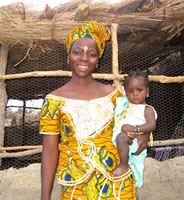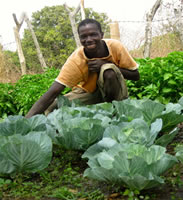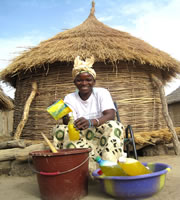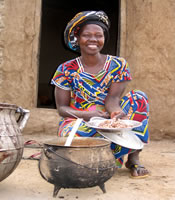Building a Business
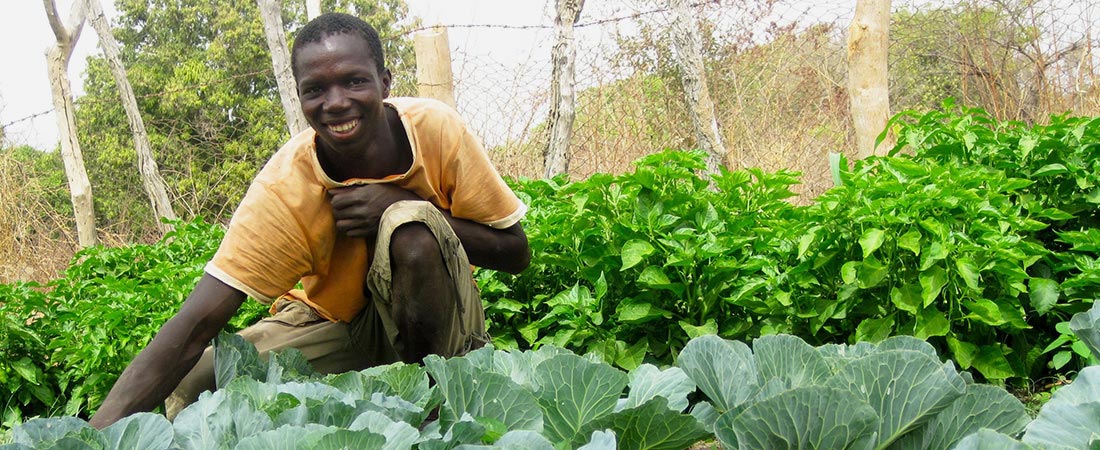
PAJE participant Moulaye Kone
The Mali Out-of-School Youth Project, also known as PAJE-Nièta, is assisting 10,000 out-of-school youth in rural areas to become better educated, economically more productive, and civically engaged. Youth volunteers conduct basic education classes (reading and writing, math, entrepreneurship, and functional French), and accompany and guide the youth as they receive technical training in their chosen fields.
To date, 2,873 youth have launched a new microenterprise, and the project is now working with its last group of more than 7,000 youth.
Learning on the go
Fatoumata Doumbia (age 25), mother of four, dropped out of school when she was young. She chose poultry-raising as her new income generating activity (IGA): “I listen to Nieta-Kalan, the audio series about entrepreneurship, on my telephone. The series is about two youth who raise poultry, like me. Nieta-Kalan has taught me the proper way to build a chicken coop, how to feed chickens, and how to commercialize my poultry-raising products.”
Harvesting new opportunities
Moulaye Kone (age 18) chose agriculture, market gardening and grain cultivation, as his IGA. “It is because of PAJE-Nièta that I am still in the village. If it weren’t for the project, I would have moved to Bamako to work in people’s homes as a house help. Today, I do market gardening, and I harvest a variety of produce, including cabbages, peppers, and other vegetables. I sell them at the local market at Sido and am now looking for clients in Bamako. This micro-business helps me to be financially independent—I no longer really envy my friends who left the village.”
Expanding business horizons
Bakone Doumbia (age 23) never had the opportunity to go to school. She chose soap making as her new business. “Before the project, I used to sell odd items here and there, but I did not make much money. Today, I make three types of soap, right here in my village. In two or three days, I sell all the soap, and I make a profit.”
Cooking up a profit
Unable to go to school, Rokia Kone (age 24), mother of five, opted to establish a small restaurant. “Thanks to PAJE-Nièta, I manage my own restaurant in my village. I cook various meals for my clients, who all come from the village. With the profit I make, I am able to pay for all the ingredients I need for my business and am also able to buy other household items, such as soap. Prior to joining the project, I would often ask other people for money in order to pay for these items.”
